Business
Lianjie Supply Chain — Redefining Global Sourcing with One-Stop, Trusted Solutions

In an era where speed, reliability, and transparency define competitive advantage, modern companies need supply chain partners that do more than move goods from A to B. They need partners who reduce risk, guarantee quality, and scale with their ambitions. Lianjie Supply Chain positions itself precisely as that partner: a one-stop global sourcing and supply solution built to connect international buyers with verified factories, self-owned production capacity, end-to-end quality controls, and logistics expertise. This article explores what Lianjie Supply Chain offers, why its model matters for brands and retailers today, how it manages risk and quality, and how businesses should think about partnering with platforms like Lianjie to transform sourcing from a cost center into a strategic advantage.
1 — The sourcing landscape today: problems and opportunity
Global sourcing gives businesses access to cost-efficient manufacturing, specialized capabilities, and scale. But cross-border sourcing also amplifies complexity: language gaps, supplier reliability, IP protection, inconsistent quality, long lead times, customs and regulatory friction, and logistics bottlenecks. Many companies—especially small-to-medium brands and startups—lack the in-house buying teams or deep supplier networks needed to navigate these issues.
This mismatch creates opportunity for trusted sourcing platforms and partners that can act as an on-the-ground extension of a buyer’s team: verifying factories, managing production and testing, consolidating shipments, and providing clear ownership where problems arise. Lianjie Supply Chain is one such partner, carving a niche by combining an accessible B2B sourcing marketplace with direct factory relationships and one-stop service offerings.
2 — Who is Lianjie Supply Chain? (Short profile)
Lianjie Supply Chain — accessible online at lianjer.com — presents itself as a trusted global sourcing partner connecting foreign buyers to Chinese and regional manufacturers. The platform’s value proposition centers on verified supplier access, self-owned production capabilities, end-to-end services (from product sourcing and prototyping to quality inspection and logistics), and offline engagement like summits to build stronger supplier relationships. The founder and leadership team emphasize reducing sourcing risk and helping buyers scale faster and safer.
Key public claims and attributes highlighted on Lianjie’s site and related pages:
- One-stop sourcing and supply chain solutions across multiple industries.
- Ownership or partnership with self-owned factories for tighter quality control and faster lead times.
- Publicly visible contact and leadership info (showing a named founder/CEO and an emphasis on direct service).
3 — Core services Lianjie provides
Lianjie’s service set is designed to cover the entire buyer journey from product concept to door delivery. The practical services most businesses care about are:
- Supplier sourcing & matchmaking: Verified supplier network and curated matches that reduce time spent vetting dozens of quotes.
- Self-owned manufacturing options: For categories where Lianjie either owns factories or has exclusive partnerships, buyers can access controlled capacity, faster lead times, and consistent standards.
- Quality control & inspections: Stage-based QC (pre-production, in-process, and final inspection) to detect defects early and avoid costly rework or returns.
- Prototyping and customization: From tooling and sample iteration to custom finishes and private labeling—useful for brands launching differentiated SKUs.
- Logistics & fulfillment: Freight consolidation, export documentation, and coordinated delivery to marketplaces, warehouses, or fulfillment centers.
- After-sales and complaint handling: Channels for customer complaints and post-shipment service to close the loop on quality issues.
These services create a seamless handoff from product idea to a saleable inventory position, minimizing the number of parties a buyer must manage.
4 — How Lianjie reduces sourcing risk — verification, audits, and self-owned factories
Risk reduction is the single most important ROI for a modern sourcing partner. Lianjie reduces risk through several practical levers:
- Supplier verification and site audits. The platform emphasizes manually verified and site-audited suppliers so buyers have baseline trust in factory capability and compliance. This reduces fraud and fake listings that plague many open marketplaces.
- Exclusive product matchmaking. For many product categories, Lianjie claims to offer curated or exclusive supplier matches, meaning buyers don’t have to sift through low-quality options.
- Self-owned factories for control. Owning or tightly integrating with factories—particularly in sectors like electrical enclosures and LED lighting (examples found on Lianjie brand pages)—gives the platform leverage to enforce quality, adhere to lead times, and adapt to urgent volume needs. Self-owned capacity also helps mitigate the “middleman risk” where multiple intermediaries cause traceability gaps.
- Offline relationship building. Lianjie runs offline summits and events to build face-to-face trust among factory owners, trade professionals, and buyers—an important cultural and practical step for long-term reliability.
Taken together, these tactics address the three common failure modes in international sourcing: (1) factory misrepresentation, (2) inconsistent quality, and (3) logistics/communication breakdowns.
5 — Quality control and customization at scale
A platform’s ability to handle customization is often what separates commodity suppliers from strategic manufacturing partners. Lianjie’s stated strengths include:
- Stage-based inspections: QC checkpoints at sampling, during production, and after completion. This reduces escapes (defective product shipped) and speeds root cause analysis when problems occur.
- Flexible customization: The platform supports private labeling, design changes, and various technical customizations—useful for consumer electronics, lighting, and industrial components. This flexibility is backed by factories capable of tooling and iterative samples.
- Direct engineering support: For technical categories (electrical enclosures, control panels, LED systems), Lianjie houses or partners with engineering teams to advise on compliance, materials, and testing.
For buyers, the practical benefit is fewer surprises: when product specs are tightly controlled and production milestones are visible, buyers can forecast inventory and marketing launches with higher confidence.
6 — Logistics, fulfilment, and after-sales support
Sourcing is only half the battle; delivering goods to market reliably is where margins and reputation are won or lost. Lianjie bundles freight services and offers coordination for export documentation and customs clearance. The value here is:
- Consolidation services: For buyers ordering multiple SKUs from different factories, consolidation cuts costs and simplifies customs paperwork.
- Door-to-door options and multiple incoterms: Flexibility to ship under common terms (EXW, FOB, CIF, DDP) depending on buyer capability and risk appetite.
- After-sales complaint handling: A formal complaint channel and remedy process help buyers manage returns or defective batches without prolonged finger-pointing.
For e-commerce brands or retailers, bundling logistics with sourcing removes coordination overhead and often yields lower landed costs versus negotiating each leg separately.
7 — Industry focus & case examples
Lianjie’s public content highlights work in multiple categories. Two practical vertical examples illustrate how different buyers extract value:
- Industrial & Electrical Components (e.g., enclosures, control panels)
- Needs: precision metalworking, compliance to electrical standards, consistent finishes, and engineering support.
- Lianjie advantage: self-owned enclosure factories and engineering partners reduce lead time for prototypes and ensure consistent standards.
- LED Lighting & Stage/Commercial Lighting
- Needs: in-house driver design, thermal testing, and custom fixtures.
- Lianjie advantage: ownership or partnership with LED manufacturers (e.g., Vorlane referenced on factory pages) allows for integrated R&D and rapid OEM production.
Other sectors (consumer electronics, furniture components, plastics/parts) can benefit similarly—especially when buyers require co-development, custom tooling, or strict batch consistency.
8 — Technology, transparency, and collaboration — digital tools Lianjie uses
Although Lianjie emphasizes offline summits and hands-on verification, modern sourcing still requires strong digital tooling to scale:
- Product pages and matchmaking platform. Lianjie’s web presence acts as the first layer for product discovery and initial supplier matches.
- Order and QC tracking dashboards. Buyers benefit from digital visibility into production milestones and inspection reports (PDFs, photos, and videos) that are archived for future audits.
- Communication & document workflows. Centralized channels for PO, technical drawings, invoices, and compliance docs reduce misunderstandings across time zones and languages.
The ideal mix—digital systems for clarity and offline relationships for trust—helps Lianjie deliver both scale and reliability.
9 — Challenges in global sourcing and how Lianjie addresses them
No sourcing model is perfect. Below are common challenges and the pragmatic ways Lianjie offsets them:
- Supply volatility and long lead times — mitigated through self-owned capacity, diversified supplier pools, and forward planning.
- Quality inconsistency — addressed by staged inspections, engineering sign-offs, and factory audits.
- Intellectual property concerns — mitigated by NDAs, controlled tooling ownership, and owning certain production lines to reduce replication risk.
- Regulatory & compliance complexity — supported by engineering and compliance teams for technical categories (e.g., electrical safety testing).
- Communication gaps — reduced via English content, local account managers, and offline events to deepen relationships and clarity.
The practical outcome is not elimination of risk—no partner can guarantee zero risk—but a meaningful reduction in the most damaging and frequent issues buyers face.
10 — How to evaluate a sourcing partner — a quick checklist
When comparing partners like Lianjie to alternatives (direct factory sourcing, trading companies, other marketplaces), use this checklist:
- Verification & audits: Does the partner perform on-site audits or rely solely on uploaded documents? (Lianjie emphasizes site audits.)
- Factory ownership & control: Do they own factories or have exclusive partnerships for critical categories? (Owning capacity reduces middleman risk.)
- QC processes: Are inspections stage-based, and are reports provided with timestamped evidence?
- Logistics integration: Can they handle consolidation, export docs, and customs clearance under preferred incoterms?
- Engineering & compliance support: For technical goods, can they help with testing and certification?
- Transparency of pricing & fees: Are costs broken down (manufacturing, QC, freight, platform fees) so total landed cost is predictable?
- References and events: Does the partner host meetups, summits, or industry events that show active community and trusted relationships? (Lianjie runs offline summits.)
A sourcing partner that scores well across these dimensions is far likelier to deliver consistent, scalable results.
11 — Practical roadmap to work with Lianjie Supply chain (onboarding to launch)
If you’re considering Lianjie Supply chain for your next product launch, here’s a step-by-step playbook you can follow:
- Initial brief & budget: Provide specs, target price, MOQ, timelines, and target compliance standards.
- Product matchmaking & supplier shortlist: Lianjie curates matched factories and shares capability statements and sample lead times.
- Samples & prototyping: Approve a first sample; iterate technical tweaks and establish final spec.
- Contracting & tooling: Agree on payment terms (deposit, balance), tooling ownership, and IP protections.
- Pre-production run & inspection: Run a pilot batch; conduct pre-production checks.
- Mass production with in-process QC: Monitor via production photos/videos and scheduled inspections.
- Final inspection & consolidation: Perform final acceptance testing; consolidate goods for shipping.
- Shipping & customs clearance: Choose incoterm and preferred logistics; track shipment to destination.
- Post-delivery support: Use complaint channels for defects or warranty issues and apply corrective action plans.
This roadmap reduces surprise and helps align expectations between buyer and supplier from day one.
12 — Future direction: resilient supply chains, sustainability, and co-development
The future of global sourcing is not just about price—it’s about resilience, sustainability, and innovation:
- Diversified supplier networks lower geopolitical and logistic risk. Platforms like Lianjie can help buyers diversify beyond single-factory dependency.
- Sustainability & compliance will be table stakes for many retail channels; sourcing partners need to manage material provenance, chemical compliance, and social standards. Buyers should ask prospective partners for sustainability roadmaps and audit capabilities.
- Co-development and modular design allow brands to shorten time to market and reduce cost through shared platform components—an area where vertically integrated partners add value by enabling design for manufacturability.
Lianjie’s approach—blending factory ownership with platform services and community events—positions it to support buyers seeking these future capabilities.
13 — Conclusion — is Lianjie right for your business?
If your business needs a partner that reduces sourcing friction, offers verified access to factories, and bundles quality control and logistics into a single offering, Lianjie Supply Chain is worth evaluating. Their blend of self-owned factory relationships, staged QC processes, one-stop capability, and community building through offline summits makes them particularly suitable for:
- Brands launching new SKUs that require rapid prototyping and reliable mass production.
- Retailers consolidating multiple suppliers into a single, accountable partner.
- Industrial buyers who need certified components and engineering support.
No platform eliminates risk entirely—buyers should still validate references, request inspection evidence, and negotiate clear contracts. But for companies that want to trade the operational complexity of global sourcing for a managed, trustworthy process, Lianjie offers a compelling model worth exploring.
Business
Why Anime Merch Makes the Best Christmas Gift for Any Fan

Christmas is a season of joy, surprises, and thoughtful presents. But if you’re searching for something unique, personal, and guaranteed to make someone smile, anime merchandise is one of the best choices you can make. Whether the person you’re gifting is a new fan or a long-time anime lover, anime merch carries emotional meaning, creativity, and style—qualities that make it the best anime Christmas gift for any type of fan.
From One Piece gifts to plush toys, apparel, accessories, and figures, anime merchandise offers endless possibilities for every personality and budget. In this article, we’ll explore exactly why anime merch makes the perfect Christmas present, what types of items fans love most, and how you can choose the right gift based on the recipient’s fandom.
1. Anime Merch Is Personal, Thoughtful & Meaningful
Unlike generic holiday gifts such as mugs or socks, anime merchandise offers personal connections. Every item represents a beloved character, a meaningful moment, or a powerful symbol from a series the fan deeply loves.
For example:
- A Luffy keychain isn’t just a keychain—it represents courage and adventure.
- A Tanjiro necklace represents kindness, willpower, and determination.
- A plush of Chopper isn’t just a toy—it symbolizes loyalty and cuteness.
That’s why anime merchandise makes the best anime Christmas gift. It shows the recipient that you understand what makes them happy and that you chose something that truly reflects their personality and interests.
2. Perfect for Fans of All Ages
Anime fandom is incredibly diverse. From kids who love colorful characters to adults who enjoy deep storytelling, anime attracts people of every age group.
This makes anime merch a perfect option for:
- children
- teens
- young adults
- long-time collectors
- casual viewers
- serious fans
Whether you’re gifting One Piece gifts to someone who grew up watching Luffy or giving a Demon Slayer hoodie to a new fan, you can always find merchandise that fits any age and any fan level.
3. Huge Variety of Gift Options for Every Budget
One of the biggest advantages of anime merchandise is its range in price and variety. You can find affordable gifts under $10 or premium collectibles worth hundreds.
This flexibility makes anime merch ideal for:
- Secret Santa exchanges
- Christmas stockings
- Budget-friendly gifts
- Luxury presents
- Personalized gift bundles
Here are some great options in every price range:
Premium Gifts
- Large figures
- Limited collections
- Signed merchandise
- Full cosplay sets
No matter your budget, anime merch always has something special to offer.
4. One Piece Gifts: A Guaranteed Christmas Hit
Among all anime franchises, One Piece stands out as one of the most beloved. With its adventure-filled story, unforgettable characters, and emotional moments, One Piece has become a worldwide phenomenon.
That’s why One Piece gifts are consistently some of the most popular Christmas items.
Here are some fan-favorite One Piece gift ideas:
● Luffy’s Straw Hat Merch
The Straw Hat symbol is instantly recognizable and symbolizes freedom and dreams.
● Devil Fruit Accessories
From Gomu Gomu no Mi to Mera Mera no Mi, these iconic fruits make unique necklaces, keychains, and display items.
● Zoro Accessories
Three-sword keychains, earrings, rings, and green-themed merch are perfect for fans of the swordsman.
● Chopper Plushies
Cute, soft, and loved by fans of all ages.
● One Piece Hoodies
Great for winter and loved by anyone who wants to rep their favorite anime in style.
Because One Piece has such a massive global fanbase, these items make the perfect gifts—even for new fans. So if you’re unsure what to give, One Piece merch is always a safe, thoughtful, and exciting choice.
5. Anime Merch Helps Fans Express Their Identity
Anime isn’t just entertainment, it’s a lifestyle and a form of self-expression. Many fans love showing their favorite characters and stories through:
- apparel
- jewelry
- phone accessories
- backpacks
- room décor
These items allow fans to display their interests confidently, whether at school, work, conventions, or online.
This is one reason anime merchandise is considered the best anime Christmas gift it’s more than a product. It helps fans feel confident in expressing who they are.
6. A Great Way to Support Their Growing Fandom
For new fans, anime merch is a fantastic way to get more involved in the community. It helps them build a connection with:
- characters
- fan groups
- online anime communities
- anime-themed events
And for long-time fans, merchandise helps expand their growing collection—something anime lovers take great pride in.
Gifting merch during Christmas adds an extra layer of joy, giving fans something to display or wear proudly during the holidays and January anime season.
7. Anime Gifts Create Lasting Memories
Some gifts are used for a few months and forgotten. But anime merchandise often becomes a treasured keepsake.
A hoodie from a loved one, a keychain from a friend, or a figure received at Christmas can hold emotional value for years. Many fans even remember who gave them their first anime gift and that memory stays forever.
This emotional connection is what makes anime merch so meaningful. It’s not just a product, it’s a symbol of shared happiness and appreciation.
8. Perfect for Surprise Gift Boxes & Themed Bundles
If you want to make your Christmas gift even more special, you can create a themed anime gift box:
Anime Gift Box Ideas:
- One Piece starter bundle
- Shonen heroes box
- Cute anime aesthetic box
- “First anime Christmas” themed box
- Cozy holiday anime set (hoodie + hot chocolate + stickers)
These bundles are fun to create and incredibly exciting to open. Adding a few One Piece gifts or small accessories instantly makes the box feel premium and personalized.
Final Thoughts: Anime Merch Truly Is the Best Christmas Gift
From emotional meaning to personal style, affordability, and endless variety, anime merch stands out as the best anime Christmas gift you can give this year. Whether you’re gifting a dedicated fan or someone just discovering their favorite shows, anime items bring joy, nostalgia, and excitement during the holiday season.
And if you want guaranteed smiles, One Piece gifts are always a safe and heartwarming option perfect for Christmas, birthdays, or any special occasion.
Business
Crypto30x.com Bitcoin Price: A Complete Guide to Today’s Bitcoin Market Trends

Introduction: Understanding the Crypto30x.com Bitcoin Price
The Crypto30x.com Bitcoin price is one of the most closely watched indicators in the cryptocurrency world. Bitcoin, often called “digital gold,” continues to shape the financial landscape as investors and institutions alike turn to it for both trading and long-term investment opportunities.
Crypto30x.com has emerged as a reliable platform for real-time crypto data, providing accurate information on Bitcoin prices, market capitalization, and price movements. In 2025, as global interest in decentralized finance grows, understanding Bitcoin’s market position through platforms like Crypto30x.com has become essential for every crypto enthusiast.
What Is Crypto30x.com and Why It Matters
Crypto30x.com is a cryptocurrency tracking platform designed to provide users with up-to-date data on Bitcoin and other digital assets. It features live price updates, technical analysis tools, and expert insights that help traders make data-driven decisions.
One of the reasons investors trust the Crypto30x.com Bitcoin price tracker is its precision. By collecting data from multiple reputable exchanges, the platform offers a more complete and realistic picture of the Bitcoin market compared to single-source trackers.
Crypto30x.com isn’t just a charting site it’s a hub for cryptocurrency education, investment news, and financial forecasting in the blockchain industry.
The Current State of Bitcoin on Crypto30x.com
As of October 2025, Bitcoin remains the top-performing cryptocurrency on global exchanges. The Crypto30x.com Bitcoin price shows that despite market fluctuations, investor confidence in Bitcoin has strengthened.
Recent trends include:
-
Increased Institutional Investment: Major companies and hedge funds continue to accumulate Bitcoin for portfolio diversification.
-
Improved Market Stability: Bitcoin volatility has reduced compared to previous years, signaling a maturing market.
-
Technological Innovations: Developments such as the Lightning Network and Taproot upgrade have improved transaction efficiency and privacy.
Crypto30x.com’s detailed analytics allow traders to follow these movements minute by minute, offering insights into potential price shifts and investment opportunities.
Key Factors Influencing the Crypto30x.com Bitcoin Price
The value of Bitcoin is shaped by a combination of internal blockchain dynamics and external global events. Let’s break down the most important factors that drive the Crypto30x.com Bitcoin price:
1. Market Demand and Supply
Bitcoin’s total supply is capped at 21 million coins. This limited availability creates scarcity, which naturally drives value as demand grows. Whenever market sentiment turns positive, demand spikes and so does the price.
2. Economic and Political Conditions
Global economic uncertainty often pushes investors toward decentralized assets like Bitcoin. Events such as inflation, currency devaluation, or stock market instability can lead to a surge in Bitcoin buying activity.
3. Technological Upgrades
Enhancements to Bitcoin’s network security, scalability, and transaction speed—such as Lightning integration—tend to boost investor confidence and price stability.
4. Media and Public Sentiment
Positive news coverage or endorsements from influential figures can have an immediate impact on price movement. On the other hand, regulatory crackdowns or negative headlines can cause short-term declines.
5. Global Regulations
Countries that adopt crypto-friendly policies often drive Bitcoin adoption, while stricter regulations may slow momentum. The Crypto30x.com Bitcoin price reflects these shifts almost instantly.
Why Traders Prefer Tracking Bitcoin on Crypto30x.com
Crypto30x.com has gained popularity for its clear, accurate, and data-driven tracking system. Traders and analysts prefer this platform for several reasons:
-
Live Market Charts: Real-time data refresh keeps users updated 24/7.
-
Multi-Exchange Aggregation: Combines data from major exchanges for accuracy.
-
Historical Price Records: Allows users to analyze long-term trends.
-
Educational Tools: Guides new investors about crypto basics and market behavior.
By using Crypto30x.com, traders can gain a deeper understanding of Bitcoin’s price patterns and make more confident trading or investment decisions.
Long-Term Outlook for Bitcoin in 2025 and Beyond
The future of Bitcoin continues to look promising. Analysts on Crypto30x.com predict that Bitcoin may maintain an upward trajectory as adoption increases globally.
Here are a few long-term drivers shaping Bitcoin’s potential:
-
Mass Adoption: More countries and businesses are accepting Bitcoin payments.
-
Institutional Expansion: Traditional finance institutions are integrating Bitcoin into investment portfolios.
-
Scarcity and Halving Events: The next Bitcoin halving, expected in 2028, could again tighten supply and influence prices upward.
-
Technological Growth: Continued innovation within the blockchain sector ensures Bitcoin’s long-term relevance.
While short-term volatility is expected, the general outlook remains positive, making Bitcoin a strategic investment option for those who understand the risks and opportunities involved.
How to Use Crypto30x.com for Smart Bitcoin Tracking
Whether you are a beginner or an experienced investor, here are some practical steps for monitoring the Crypto30x.com Bitcoin price effectively:
-
Set Price Alerts: Receive instant updates when Bitcoin crosses your target value.
-
Compare Market Data: Check price trends across different exchanges.
-
Read Market News: Stay informed about new crypto policies and financial updates.
-
Use Analytics Tools: Review Bitcoin’s historical charts for better decision-making.
-
Stay Consistent: Regular monitoring helps identify ideal buying or selling opportunities.
By combining technical analysis with Crypto30x.com’s real-time data, investors can minimize risks and enhance profitability.
The Importance of Staying Updated in the Crypto World
The cryptocurrency market evolves rapidly, and missing updates can mean losing key opportunities. The Crypto30x.com Bitcoin price dashboard ensures that traders and investors never fall behind.
Through detailed charts, live updates, and expert predictions, Crypto30x.com has become a trusted destination for anyone serious about Bitcoin trading. Staying informed through such reliable platforms is essential to making well-timed financial decisions in today’s fast-moving crypto economy.
Conclusion
In summary, the Crypto30x.com Bitcoin price reflects not just market numbers but the entire global sentiment toward digital finance. Platforms like Crypto30x.com provide a transparent view of Bitcoin’s real-time value, equipping traders and investors with the information they need to navigate this evolving market.
As Bitcoin continues to reshape global finance, monitoring its trends through Crypto30x.com will remain vital for those aiming to understand, invest, or profit from the cryptocurrency revolution.
Business
Why Largo Jewelers is Your Go To Destination for Special Occasions

Introduction to Largo Jewelers
When it comes to celebrating life’s special moments, finding the perfect piece of jewelry can make all the difference. Whether it’s an engagement ring, a milestone birthday gift, or something truly unique for your loved one, Largo Jewelers stands out as a premier destination for every occasion. With its rich history and commitment to quality, this beloved local gem has become synonymous with elegance and charm. Let’s explore what makes Largo Jewelers the ultimate choice for those unforgettable celebrations in your life.
A Legacy of Quality and Excellence
Largo Jewelers has built a reputation rooted in quality and excellence. For years, the brand has been synonymous with craftsmanship that stands the test of time. Each piece is meticulously crafted, showcasing skilled artistry.
The commitment to superior materials sets Largo apart from competitors. Precious metals and stunning gemstones are sourced responsibly, ensuring beauty and durability.
Customers appreciate this dedication to excellence not just in product but also in service. Knowledgeable staff take pride in guiding clients through their selections, providing insights that enhance the shopping experience.
This legacy nurtures trust among patrons who return for life’s milestones—engagements, anniversaries, or simply celebrating oneself. When you choose Largo Jewelers, you’re choosing pieces that carry stories and memories woven into their very fabric.
Extensive Collection of Jewelry Pieces for Every Occasion
At Largo Jewelers, variety is the name of the game. Their extensive collection features pieces for every occasion imaginable. Whether you’re celebrating a wedding, anniversary, or birthday, there’s something special waiting for you.
From dazzling diamond rings to elegant pearl necklaces, each item tells its own story. You can find modern designs alongside timeless classics that will never go out of style.
Looking for something unique? The options are endless. Choose from vibrant gemstones or delicate gold and silver settings that catch the eye and captivate hearts.
No matter your budget, Largo Jewelers ensures that quality meets affordability in each piece. When you walk into their store, expect to be amazed by an array of choices tailored just for you. Each visit feels like a treasure hunt filled with excitement and possibilities.
Customization and Personalization Services
At Largo Jewelers, the art of customization is taken to new heights. Each piece can be tailored to reflect your unique story and style. Whether it’s a delicate engraving or a complete redesign, our skilled artisans are here to bring your vision to life.
Imagine crafting a custom engagement ring that captures every detail of your love story. Our team collaborates closely with you, ensuring every choice aligns perfectly with your desires.
Personalization goes beyond just design; it’s about creating meaningful connections. Choose from an array of materials, gemstones, and styles that resonate with you personally.
Our commitment doesn’t end at creation. We stand by each personalized piece as a lasting symbol of cherished moments in life. At Largo Jewelers, we celebrate individuality while helping clients express their emotions through exquisite jewelry.
Competitive Prices and Financing Options
At Largo Jewelers, we believe that elegance should be accessible. That’s why our prices are designed to cater to a wide range of budgets without compromising quality.
We offer an extensive selection of stunning jewelry pieces at competitive rates. Whether you’re looking for timeless classics or contemporary designs, you’ll find something special within your price range.
To make your shopping experience even better, we provide flexible financing options. This means you can invest in the perfect piece without breaking the bank. Our plans are straightforward and tailored to fit various financial situations.
You deserve to celebrate life’s milestones with beautiful jewelry that reflects those moments. With our commitment to affordability and convenience, every occasion becomes memorable—without the stress on your wallet.
Exceptional Customer Service and Satisfaction
At Largo Jewelers, customer service is not just a department; it’s the heart of our business. From the moment you walk through our doors, you’re greeted with warmth and genuine enthusiasm.
Our knowledgeable staff takes time to understand your needs. Whether you’re searching for an engagement ring or a thoughtful gift, we listen carefully and guide you through every step of the process.
Each interaction reflects our commitment to satisfaction. We prioritize building lasting relationships with customers, ensuring that everyone leaves feeling valued.
Questions are welcomed here. Our team is always ready to provide expert advice or share stories behind each piece of jewelry in our collection.
Every detail matters at Largo Jewelers, from your initial inquiry to aftercare support. It’s this dedication that transforms shopping into an experience worth remembering.
Making Memories at Largo Jewelers: Real Testimonials from Satisfied Clients
At Largo Jewelers, the memories made are as precious as the pieces themselves. Clients often share stories that warm the heart and leave lasting impressions.
One couple recalled their engagement story. They walked into Largo Jewelers feeling uncertain but left with a breathtaking ring that perfectly captured their love. The joy in her eyes said it all.
Another client cherished her anniversary gift—a custom necklace designed at Largo. She described how it symbolized years of togetherness, crafted with care and attention to detail.
A mother shared her excitement about finding a first pair of earrings for her daughter’s birthday. The staff helped choose something special, making the day unforgettable.
These testimonials highlight why families return time after time to create new memories at Largo Jewelers, where each piece tells a story waiting to be shared.
Conclusion: Why Largo Jewelers is the Best Choice for Your Special Occasions
When it comes to celebrating life’s special moments, Largo Jewelers stands out as the premier choice for all your jewelry needs. With a rich legacy of quality and excellence, you can trust that every piece in their extensive collection has been thoughtfully crafted to meet high standards.
Their customization and personalization services allow you to create unique pieces that carry sentimental value. Whether it’s an engagement ring or a gift for a loved one, Largo Jewelers ensures each item tells its own story.
Competitive pricing and flexible financing options make luxury accessible. You don’t have to compromise on quality when shopping here; they offer exceptional value without sacrificing style or craftsmanship.
What truly sets Largo Jewelers apart is their commitment to customer service. The team goes above and beyond to make sure clients walk away satisfied, creating lasting relationships built on trust.
Real testimonials from happy customers further emphasize the memorable experiences people have at this cherished establishment. It’s not just about buying jewelry; it’s about making memories that last a lifetime.
For anyone looking for exquisite jewelry paired with exceptional service for special occasions, Largo Jewelers remains unmatched in both product offerings and customer experience. Choosing them means choosing elegance, quality, and heartfelt connections in every piece you acquire.
Business
Top Reasons to Invest in Faisal Town Phase 2 Before 2026

Investors In the real estate sector of Pakistan, the players are always after housing developments with a combination of location, reliability, and high returns. Faisal Town Phase 2 is one of the most promising investments in the Islamabad region, among the growing developments in the region. The project, developed by the reputed Zedem International has been able to attract both local and foreign investors.
In case you are planning to invest in a property before 2026, the following are the best reasons as to why Faisal Town Phase 2 should be first in your list.
Prime Location on M-2 Motorway
The strategically positioned Faisal Town Phase 2 is directly connected in the M-2 Motorway with Islamabad and Lahore. This prime location, as well as guarantees easy access to large cities, does not only increase the value of the property to a remarkable extent.
The location of the project is close to Faisal Hills, Capital Smart City, and the New Islamabad International Airport and thus would be a perfect location where investors would consider long-term appreciation. Having the planned motorway interchanges and the new access roads, the area will become one of the most connected areas around the twin cities.
Good Developer Reputation- Zedem International.
Zedem International is the name behind the project and it is already known to be trusted in providing successful ventures like the Faisal Town, Faisal Hills, and Faisal Margalla City.
Its history of successful delivery on schedule, quality development, and open dealings makes the developer a winner to the investors who are assured that their money is safe with them. The Faisal Town Phase 2 carries the same legacy by keeping the modern infrastructure, superior town planning and sustainability.
Affordable Payment Plans
The Faisal Town Phase 2 has one of the most attractive features; the flexibility and ease of paying as an investor. It has also made installment options available to the developers and this facilitates easy acquisition of plots by middle-income earners without straining their wallets.
The installment plans are structured to offer 5 Marla, 10 Marla and 1 Kanal plots to both the small and the big investors. There is also pre-launch and post-launch increases in price and this guarantees high returns within a short period of time to early buyers.
Rapid Development Work
Zedem International is also credited with initiating development activities shortly after the launching of the project, and Faisal Town Phase 2 is no exception. The groundwork is also being done and heavy machinery is set.
Ths fast track is a mark of the developer who is committed to the project as well as draws serious investors who want to see on-ground developments. By the year 2026, a lot of infrastructure like roads, sewerage and residential blocks will be ready.
Proximity to Key Landmarks
The location of Faisal Town Phase 2 can be seen as a strength in the access to major landmarks. It is only a several minutes drive away:
- New Islamabad International Airport.
- Thalian Interchange
- Faisal Hills and Capital Smart City.
- Motorway and CPEC Route
This kind of connectivity is of great advantage both on residential and commercial investments. Individuals serving in Islamabad or Rawalpindi will have a safe and easy place to live other than the congestion in cities.
High Return on Investment (ROI) Possibility.
The initial investors in the projects such as Faisal Town Phase 1 had seen a boost in returns within a couple of years and Phase 2 will likely experience the same.
Due to the advancement in development and the nearby infrastructure, it is expected that the price of the plots will grow dramatically by the year 2026. Investors who make purchases today can anticipate profits of short to medium term particularly when ownership is awarded and construction is commenced.
Future Development of adjacent regions.
The north of Islamabad is developing at high speed due to various housing societies, new infrastructural projects and the government is interested in developing the region.
Due to the development of the M-2 corridor and airport zone, there will be a sharp increase in the demand of the property. As one of the first projects to be developed in this region, Faisal Town Phase 2 will be an automatic beneficiary of this growth.
Safe and clean Investment.
Zedem international has a record of clear records, approved plans and clear transactions. Plots are purchased with a lot of assurance and investors do not have to be concerned with legal issues and delays in project completion- this is a big plus as compared to most other housing schemes.
Early Bird Advantage Before 2026
Prices are still in the pre-possession stage, and it is the most appropriate time to invest. The project will go into its possession and building phase by the year 2026, which in its turn will naturally result in rising property prices.
Not only will you be guaranteed of lower rates but premium locations in the society will be offered to you right now since they might not be offered at a later time.
Conclusion
One of the sure and most rewarding real estate investments in Islamabad area is Faisal Town Phase 2. It has an ideal location, the reputation of its developers, low payment schemes, and quick development that promises a bright future of both investors and residents.
Faisal Town Phase 2 is the best place to have the mix of security, growth, and lifestyle in case you want to purchase a property before 2026. One of the most lucrative investments you can ever make in the Pakistani real estate business is investing early.
Business
Is Ripple a Good Investment? Evaluating Its Potential and Risks

A question arises on whether XRP is Ripple a good investment or not? This article can be read to see its potential, market position, and risks before making the decision of investing in it.
Introduction: Ripple (XRP) What is it?
Ripple (XRP) is a digital payment network and a cryptocurrency; it is dedicated to facilitating a fast and cheap money transfer across borders. It has caught the interest of being used in the financial sector but the question is, is Ripple a good investment?
Ripple’s Market Position
One of the best-known cryptocurrencies is Ripple, which has been ranked among the best digital assets in terms of market capitalization. Although it has encountered legal difficulties, it has continued to have a robust presence in the crypto market, particularly in using it to make cross-border payments.
The Legal Challenge
The current legal battle between Ripple and the U.S. Securities and Exchange Commission (SEC) is one of the biggest issues regarding Ripple as an investment. According to the SEC, XRP is a security and this has cast doubts on its future. Such uncertainty in law can impact its price, and its potential to invest in the short run.
Use Case and Adoption of Ripple.
The main selling point of Ripple is that it finds application in financial institutions. RippleNet is a network that enables banks and payment providers to transfer money all around the world at minimal costs and in reduced time than conventional systems. More widespread use by large financial institutions and payment services would serve as a value addition to Ripple in the long run.
The Supply and Dynamics of XRP.
The number of coins in circulation of XRP is 100 billion units that is fixed and this is capable of causing inflationation in the long run. The supply is mostly dominated by Ripple Labs the organization that owns the XRP and that can manipulate its allocation. Such centralization may influence investor trust in the value of XRP in the long-term.
Bitcoin and Ethereum vs. Ripple.
Ripple is inherently different to Bitcoin and Ethereum. Whereas Bitcoin is a store of value and Ethereum decentralized applications, Ripple is devoted to international payments optimization. This incongruity between use cases renders Ripple an interesting alternative but restricts its use in widespread adoption compared to either Bitcoin or Ethereum.
Ripple Strategic Partners.
The global financial institutions and payment networks that Ripple has been able to enter into important partnerships with may assist in broadening its use case and adoption. These collaborations with such companies as Santander, American Express, and SBI Holdings contribute to the credibility of the technology offered by Ripple and it has more opportunities of success in the long term.
The risks of investing in Ripple.
The main threats of investing in Ripple are its lack of legal certainty, its centralized structure, and the possibility of other similar blockchain-powered solutions competing with it. Also, there is market volatility in the crypto market, which provides an extra risk to investors who intend to hold XRP in the long term.
Is Ripple a Good Investment?
The answer to whether Ripple is a good investment is based on your financial objectives and the risk tolerance. Should you think that Ripple has the potential of changing cross-border payments, and the capacity to bypass regulatory obstacles, it can present substantial rewards. But the legal ambiguity and market instability imply that it might not be appropriate to all investors.
Conclusion: Comparing Advantages and Disadvantages.
Ripple is a curious investment option especially to those considering the possibility of the blockchain technology gaining momentum in the financial industry. Nevertheless, the legal issues and threats of centralization that are still arising should also be taken into account. Like any other investment, in-depth research and comprehension of the risks in investing are very important in making the decision.
Business
Bemyexchange: Complete Guide to the Digital Trading Platform
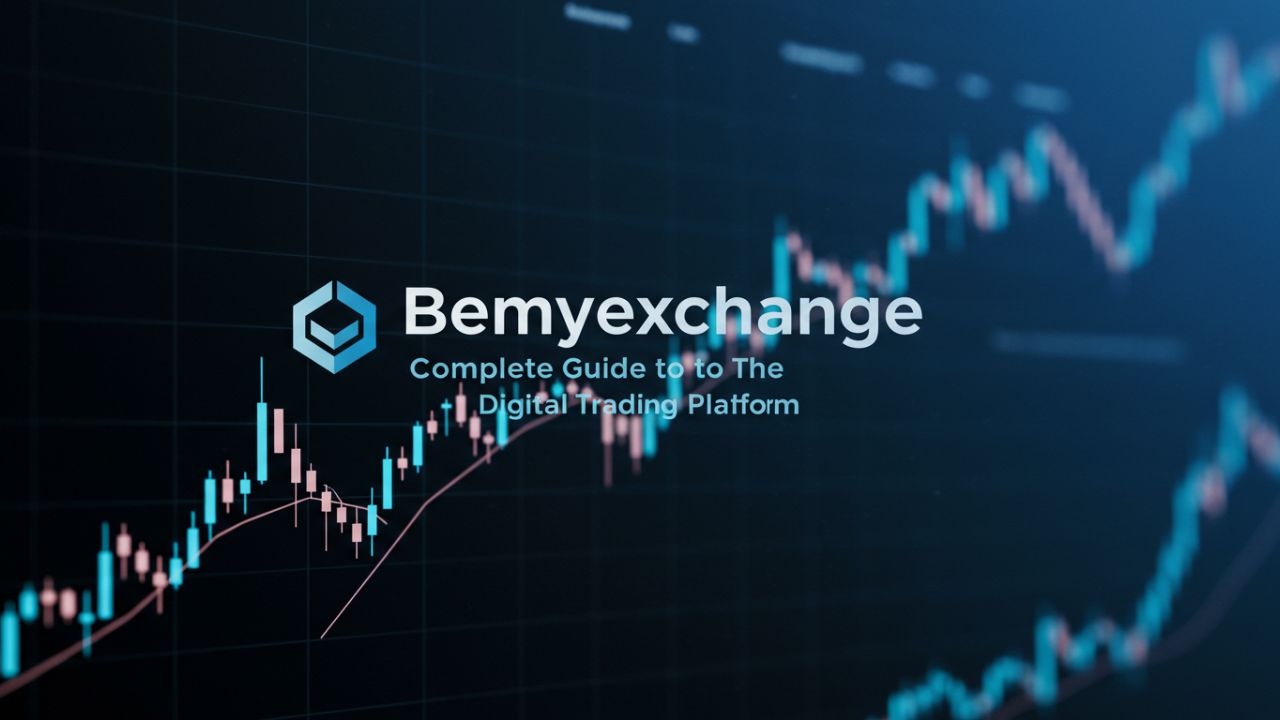
Introduction to Bemyexchange
Welcome to the world of digital trading, where opportunities are just a click away. If you’re looking for a platform that combines user-friendliness with powerful tools, Bemyexchange is worth your attention. This innovative platform simplifies the complexities of trading by offering a seamless experience for both beginners and seasoned traders alike.
With financial markets constantly evolving, having access to reliable platforms is crucial. Bemyexchange stands out by providing robust features designed to enhance your trading journey while ensuring security and efficiency. Get ready to explore how this dynamic exchange can transform the way you trade!
How Does Bemyexchange Work?
Bemyexchange operates as a digital trading platform that connects buyers and sellers seamlessly. Users can create an account, which is the first step to accessing its features. Once registered, traders can explore various cryptocurrencies and other digital assets available for exchange. The user-friendly interface allows easy navigation through different markets. To execute trades, users place buy or sell orders based on their market analysis. Bemyexchange employs real-time data feeds to ensure accurate pricing and instant execution of transactions.
Security measures are also a priority. Two-factor authentication and encryption protect user information while fostering trust within the community. Additionally, Bemyexchange supports multiple payment methods to cater to diverse preferences, enhancing convenience for all users engaged in trading activities.
Benefits of Using Bemyexchange
Bemyexchange offers a user-friendly interface that simplifies the trading process for both novices and seasoned traders. The platform’s design makes it easy to navigate, allowing users to focus on their trading strategies without unnecessary distractions. Security is paramount at Bemyexchange. With top-notch encryption protocols in place, your assets and personal information remain safeguarded against potential threats. Another significant advantage is the variety of cryptocurrencies available for trading. Users can explore numerous options, catering to diverse investment interests and risk appetites.
Additionally, Bemyexchange provides real-time market analytics. Accessing up-to-date data helps traders make informed decisions quickly, increasing their chances of success in a fast-paced market. The responsive customer support team ensures that help is readily available whenever needed. This reliability fosters confidence among users as they engage with the platform while navigating any challenges that may arise.
Step-by-Step Guide to Trading on Bemyexchange
Getting started on Bemyexchange is simple. First, create your account by providing basic information. This includes your email and a secure password. Next, verify your identity as required by the platform. This step enhances security and ensures compliance with regulations. Once verified, deposit funds into your trading account. You can use various payment methods for convenience.
Explore the user-friendly interface to find different assets available for trading. Take time to analyze market trends using the provided charts and tools. When you’re ready to trade, select an asset and specify how much you want to buy or sell. Double-check all details before confirming the transaction. Monitor your trades through the dashboard. Adjust strategies based on performance metrics shared by Bemyexchange’s analytics features for better results over time.
Tips for Success on Bemyexchange
To thrive on Bemyexchange, start with thorough research. Understand the market trends and analyze price movements. Knowledge is your best ally in trading. Next, always set a budget for each trade. This will help you manage risk effectively and prevent emotional decisions that could lead to losses. Stick to your plan. Consider diversifying your portfolio as well. Don’t put all your eggs in one basket; explore different assets available on the platform. This can enhance potential returns while spreading out risks.
Utilize tools offered by Bemyexchange, like charts and analysis features. These resources can provide valuable insights into market behavior and assist in making informed choices. Stay disciplined and patient. Successful trading takes time; don’t rush or chase quick profits at every turn. Keep learning from both wins and losses to continuously improve your strategy.
Common Mistakes to Avoid on Bemyexchange
One common mistake traders make on Bemyexchange is neglecting research. Skimming over vital information can lead to poor decision-making and unexpected losses. Another pitfall is failing to set clear limits. Without stop-loss orders, you risk significant financial drawbacks when the market fluctuates unexpectedly. Many users also underestimate the importance of security practices. Weak passwords or ignoring two-factor authentication can compromise your account, putting your investments at risk.
Additionally, emotional trading often leads to regrettable choices. Allowing fear or greed to dictate actions may result in hasty trades that don’t align with a well-thought-out strategy. Not keeping up with platform updates can hinder performance. Staying informed about new features and changes ensures you’re utilizing Bemyexchange efficiently for optimal trading success.
Future Developments and Updates for Bemyexchange
Bemyexchange is set to transform the digital trading landscape with exciting upcoming features. Users can look forward to enhanced security protocols, ensuring a safer trading environment for everyone. The platform plans to introduce new cryptocurrencies, broadening the scope for traders eager to diversify their portfolios. This expansion will cater to an increasing demand for alternative digital assets. Additionally, Bemyexchange aims to improve its user interface based on community feedback. A more intuitive design will make navigation smoother and trading simpler.
Advanced analytical tools are also on the horizon. These innovations will empower traders with in-depth insights, helping them make informed decisions. Integration with other financial services could facilitate seamless transactions across various platforms, paving the way for a more interconnected financial ecosystem.
Conclusion
Bemyexchange stands out as a promising digital trading platform, catering to both novice and experienced traders. With its user-friendly interface and robust features, it is designed to make the trading experience smooth and efficient. Understanding how Bemyexchange operates can significantly enhance your trading journey. By familiarizing yourself with its tools and functionalities, you set the stage for informed decision-making. The benefits of using Bemyexchange are numerous. From competitive fees to diverse asset offerings, users find ample opportunities for growth in this dynamic marketplace.
Following a step-by-step guide ensures that even beginners can navigate through trades efficiently. The platform provides resources that help simplify complex processes while allowing traders to execute their strategies effectively. To succeed on Bemyexchange, staying informed about market trends is crucial. Utilizing analytical tools available within the platform can also provide valuable insights into making profitable trades. Avoiding common mistakes like overtrading or ignoring risk management principles can save time and capital in the long run. Learning from others’ experiences may lead to more strategic choices moving forward.
Looking ahead, Bemyexchange aims for continuous improvement with regular updates planned to enhance functionality further while expanding its service offerings. Keeping an eye on these developments will likely prove beneficial as they unfold. With all these aspects considered, engaging with Bemyexchange could be a rewarding venture for those willing to embrace digital trading’s future potential.
Business
Pollution and Global Warming: How They Are Linked?

You can feel the weight of human development in the air if you stand on a bustling city street on a hot afternoon. The stench of petroleum, the cloud that hangs over rooftops, and the growing heat are all problems that are very much related. Almost everything we do creates pollution, which is making global warming worse. The Earth used to be a system that balanced itself, but now it is too full of what people have put into its sky, rivers, and soils. To know this link is to know why our world seems less stable, less predictable, and far more vulnerable than it used to.
What We Mean by Pollution
Pollution isn’t only smoke from automobiles or chimneys. Carbon dioxide stays in the sky for hundreds of years. Livestock releases methane, and fertilisers release nitrous oxide. Plastic is breaking up into small pieces in the waters, and toxins are getting into the land. It is even tiny particles that are too small to see and can become stuck in people’s lungs, changing their lives and shortening their lives. Each of these pollutants helps to warm the world by either retaining heat or making the Earth’s natural defences against increasing temperatures less effective. Our large skip hire service is perfect for managing bulky waste from major projects efficiently.
Understanding Global Warming
At its foundation, global warming is a narrative of things being out of balance. The Earth has always kept some heat in to make life viable, but since the industrial revolution, people have put too much heat into the system. Greenhouse gases are currently forming a thick layer over the Earth that keeps heat from escaping into space. The upshot is that the average temperature is greater, glaciers are melting, storms are getting worse, and the oceans are getting higher.
The Invisible Thread Between the Two
Hard to see but unavoidable link between pollution and global warming. Factory chimneys, motor engines, and deforestation contaminate the air and warm the planet. Each molecule of airborne carbon dioxide, methane, and other gases retains heat. Pollutants like black carbon don’t last long, but they amplify the sun’s beams, making heat greater.
Factories, Cities, and the Carbon Burden
Factory and city life have made life easier and more pleasant, but they have stressed the atmosphere. We can’t see the weight of coal and oil-powered energy systems, millions of automobiles, and endless industrial lines. The issue is a system that has built on habits that harm the environment it requires to survive. Every new building, road and power plant adds to future generations’ carbon debt.
Farming, Food, and Heat
Even our food shows how pollution warms the earth. Cattle herds release methane, which retains heat better than CO2. Plant fertilisers release nitrous oxide, another greenhouse gas. Clearing trees for farmland lowers Earth’s carbon absorption capabilities. Food becomes pollution, which feeds humans and raises air temperature.
Oceans Under Pressure
After absorbing a lot of carbon dioxide and heat, the oceans are showing signs of stress. Warmer water destroys coral reefs’ colour and habitats. Plastics and poisonous garbage choke marine life. Acidification makes ocean carbon storage problematic. The seas used to cool the earth, but pollution has weakened them. Now they depict the same sky-high devastation.
Human Lives Caught in the Middle
Pollution and warming damage billions of people’s health. People with asthma, heart disease, and long-term lung issues are hospitalised by air pollution. These effects worsen with rising temperatures, making polluted cities more lethal. Heat waves, wildfires, and floods harm people and pollute the environment. The chain never stops, and individuals are its centre.
A World Paying the Price
The economy is also hurt by this mess. Hot weather kills crops, storms destroy structures, and energy requirements rise with temperatures. Global warming and pollution harm the environment, companies, finances, and livelihoods. Air pollution and climate change used to be separate issues, but now they damage the economy.
Loops That Feed Themselves
Growing strength makes this relationship extremely worrisome. When ice melts, waterways darken and absorb more sunlight, heating them faster. Burning or chain sawing trees releases stored carbon, worsening warming. Methane leaks from melting permafrost worsens the issue. If we don’t act, pollution and warming might spiral out of control.
Finding the Way Out
The story need not happen. This can be fixed by understanding how pollution and global warming are linked. Reduce the problem via cleaner energy, sustainable farming, regenerated forests, and better waste management. Every pollution reduction delays global warming. Governments, corporations, and people all contribute to the answer. We need the will to break the pollution-climate change nexus.
Conclusion
Pollution and global warming are one issue we must all fight. The sky’s smoke heats the Earth. Things that damage rivers also slow Earth’s recovery. Disregarding one risks both. Their relationship and responsibility are undisputed. The first step to a safe future is realising that reducing pollution means fighting global warming. People can only alter the story from disaster to recovery and strength then.
Visit woolrec for more informative blogs.
Business
Best Waste Removal Option for Small Household Projects
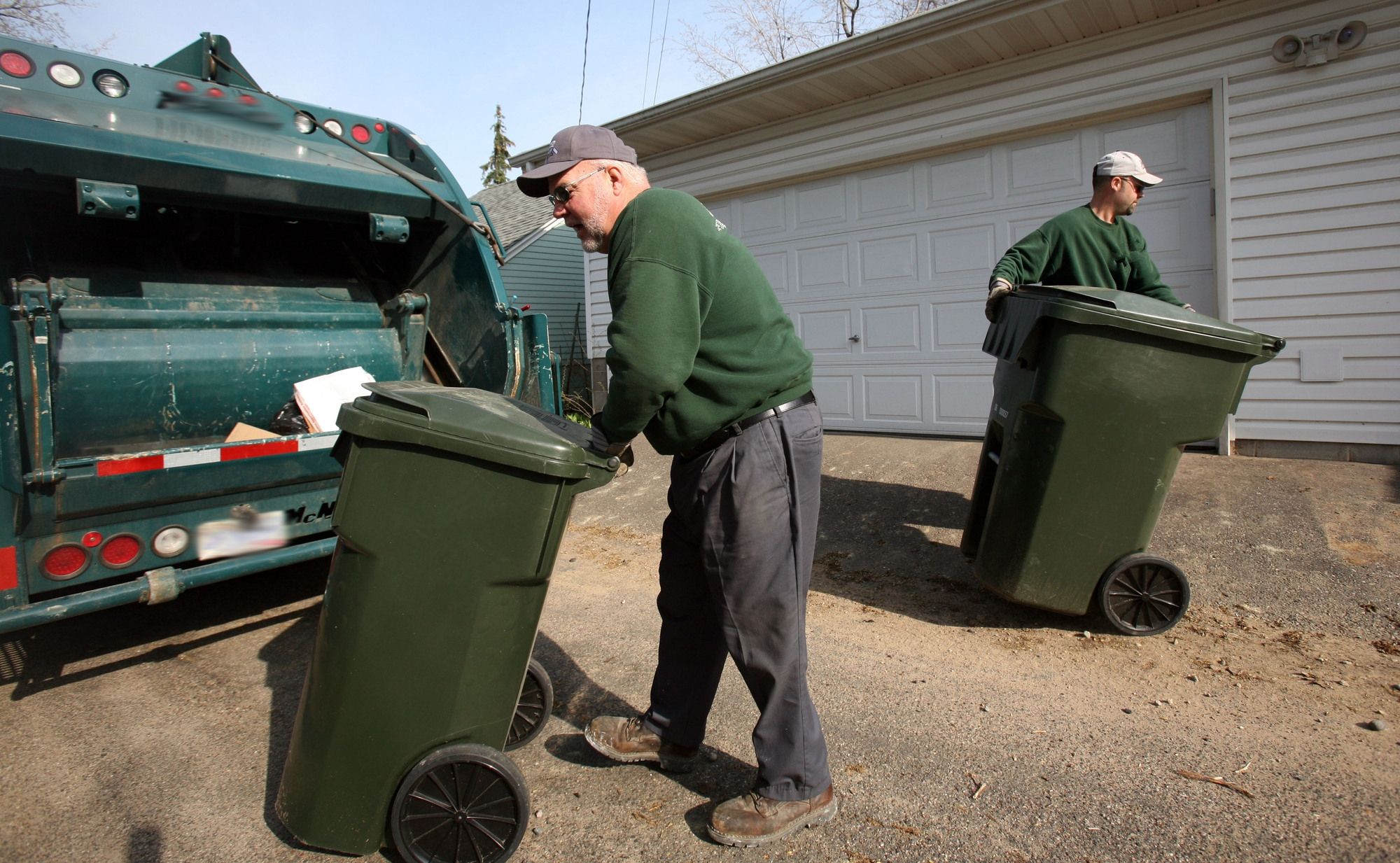
Small home projects appear simple at first. You may renovate a room, clear the loft, or replace a few worn-out cupboards. Soon, though, the rubbish starts to accumulate bags of trash, shattered furniture, leftover wood, and packing. Regular bins fill rapidly; waiting for council collection slows everything down. That is the reason organizing trash disposal counts as much as the undertaking itself. A tidy and safe surroundings speeds you up and improves your productivity. A Small skip for hire is one affordable choice many people select. It provides you with enough room for mixed garbage without overpowering your driveway. More significantly, it spares you the journeys to the nearby recycling facility. Having the proper trash management in place guarantees that your house remains neat and stress-free while the job is completed, regardless of its scale. In this article, we will explore some of the best waste removal options for small household projects.
Traditional Trash Bins Have Limits
Most individuals initially think of ordinary garbage containers. They already fit the house and are known. But under projects, bins swell quickly. Usually, a lot inside are paint cans, wood pieces, or huge furniture. Frequent waste removal schedules further aggravate clean-up. Waiting weeks for pickup slows down development. Local councils can even fine you if your bins overflow. Baskets are appropriate for little projects, but only for extremely light garbage.
Recycling Helps but Needs Planning
One responsible choice is recycling. Cards, glass, and some plastics can be sorted and recycled. Recycling, however, calls for additional work. You must check local laws, sort trash, and sometimes go to a recycling facility. Not every home project’s refuse qualifies either. Mixed materials or damaged furniture might not meet recycling regulations. Although recycling lowers landfill trash, it is seldom the quickest solution for project cleaning.
Skip for Hire is an easy solution.
For several families, skip hire presents a sensible solution. Most little projects call for just a little skip. You buy it, then fill it, then the firm removes it. No travels to the dump. No overfilled bins. Skips are capable of handling old furniture, plaster, and wood, among other materials. Additionally, reducing energy use and time saved is achieved. Space is a drawback. You need a driveway or a place for the skips. If left on the street, local permits could also be relevant. For most small projects, skip hire is still among the simplest waste removal solutions.
Man and Van Services for Flexibility
Man and van waste removal is another excellent alternative. This service sends a team to your house. They carry the trash into their van and get rid of it. You don’t do the heavy lifting, thus it is quicker than employing a skip. You also stay free of permit problems. The timing and volume of man and van services are adaptable. From one couch to several bags of rubble, they gather everything. The load dictates the price; smaller projects could benefit from this.
Local Council Collection Options
Several local governments provide bulk trash pickup. This choice is either inexpensive or often free. For things such as mattresses, doors, or white goods, you can plan a collection. The system, meanwhile, is not always adaptable. The collection might take weeks or days. Furthermore, limiting the items taken is a council. This technique is ideal for tiny projects with only a few heavy elements. It usually falls short for bigger or mixed waste removal.
DIY Trash Removal
Should you have transportation, you may convey garbage straight to a neighbourhood recycling facility. Because it is usually free, this is a low-cost choice. You can also correctly arrange materials for recycling. The negative is labour. You have to load your automobile, go to the place, unload, and perhaps queue. Your car might suffer from heavy or untidy garbage. This approach is best suited for motivated homeowners with light loads. But for most, it seems like overkill.
Selecting the Right Option for You
Every little project is unique. The best trash removal solution depends on volume, kind, cost, and labour. Small clutter could be handled with regular bins. For those with time and organised materials, recycling works. For mixed waste removal, skip hire provides a neat and easy answer. Man and van services provide help when you require it. Council collection is good for restricted bulky items. Recycling facilities provide homeowners with transport and patience. The best option is the one that reduces stress while also keeping your project site safe and clean.
Conclusion
Often, our little home projects amaze us with their waste removal creation. Having a defined removal strategy saves time and prevents aggravation. Regardless of whether you select a skip, a van service, or a municipal collection, the objective is the same: fast and responsible garbage clearance. Orderly environments increase the pleasure and success of little tasks.
Visit woolrec for more informative blogs.
-
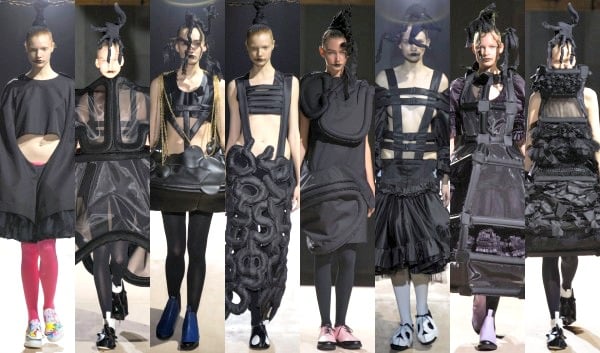
 Fashion2 months ago
Fashion2 months agoComme des Garcons: The Iconic Avant-Garde Fashion Brand
-
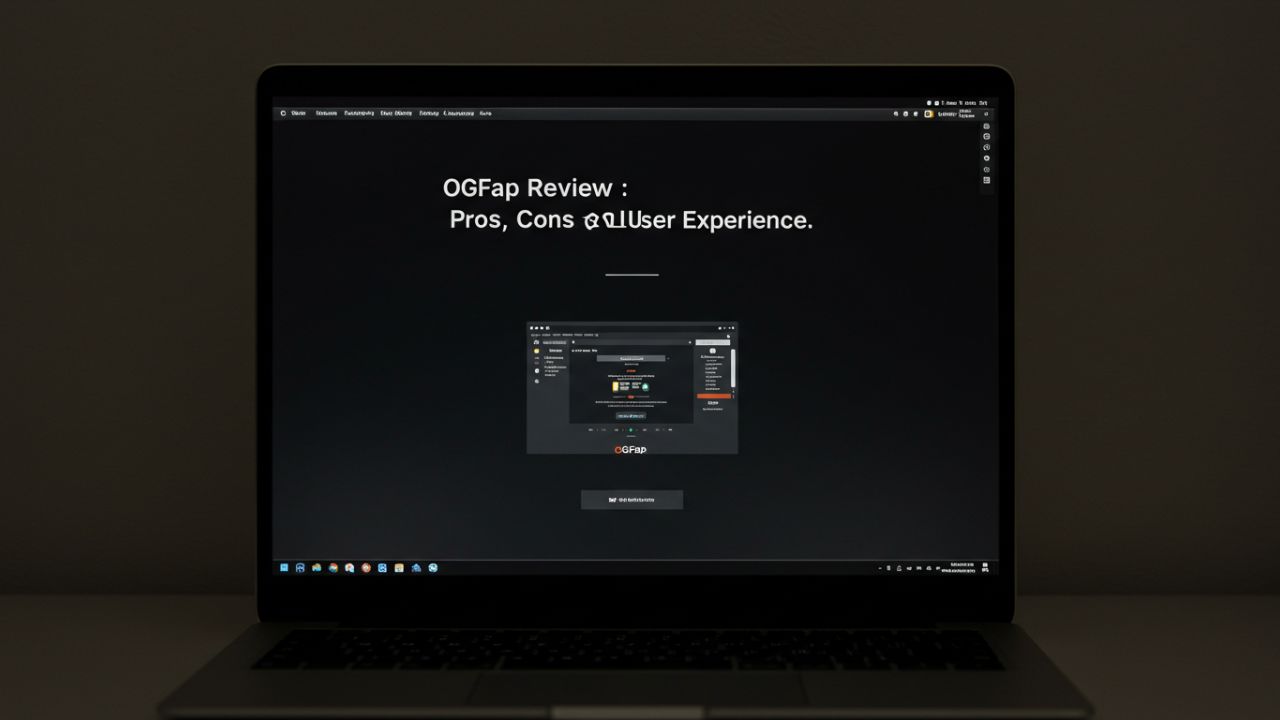
 Entertainment3 months ago
Entertainment3 months agoOGFap Review: Pros, Cons, and User Experience
-

 Blog3 months ago
Blog3 months agoRuisseau d’Avenelle: A Peaceful Escape into Nature
-

 Blog3 months ago
Blog3 months agoi̇ns: Exploring Its Meaning, Values, and Modern Impact
-

 Blog3 months ago
Blog3 months ago鲁Q 669FD License Plate Lookup – Car History & Vehicle Records
-

 Life Style3 months ago
Life Style3 months agoThe Ultimate Guide to Halloween Contacts for Eyes: Everything You Need to Transform into Your Darkest Character
-
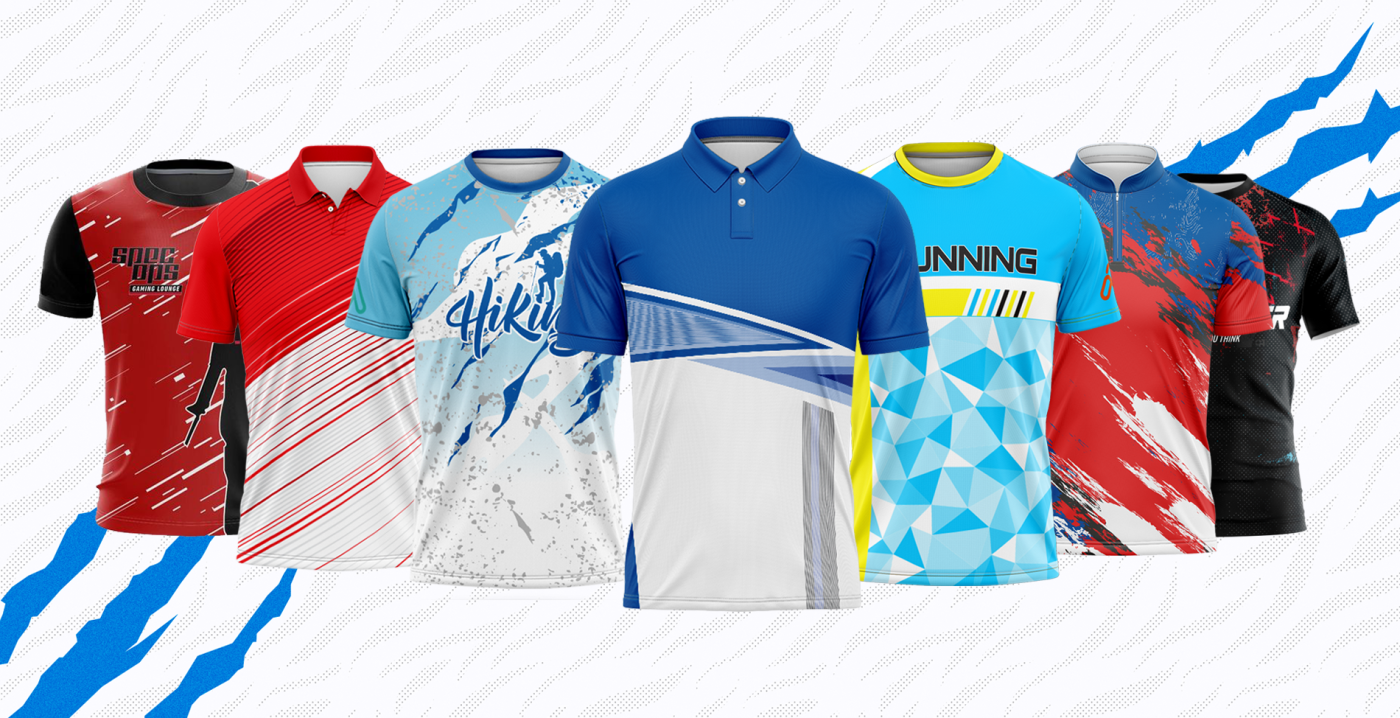
 Fashion2 months ago
Fashion2 months agoCustom Jersey Printing: Designing Your Team’s Identity with SeamJersey
-

 Uncategorized4 months ago
Uncategorized4 months agoManga18fz: A Complete Guide to the Trending Manga Platform

